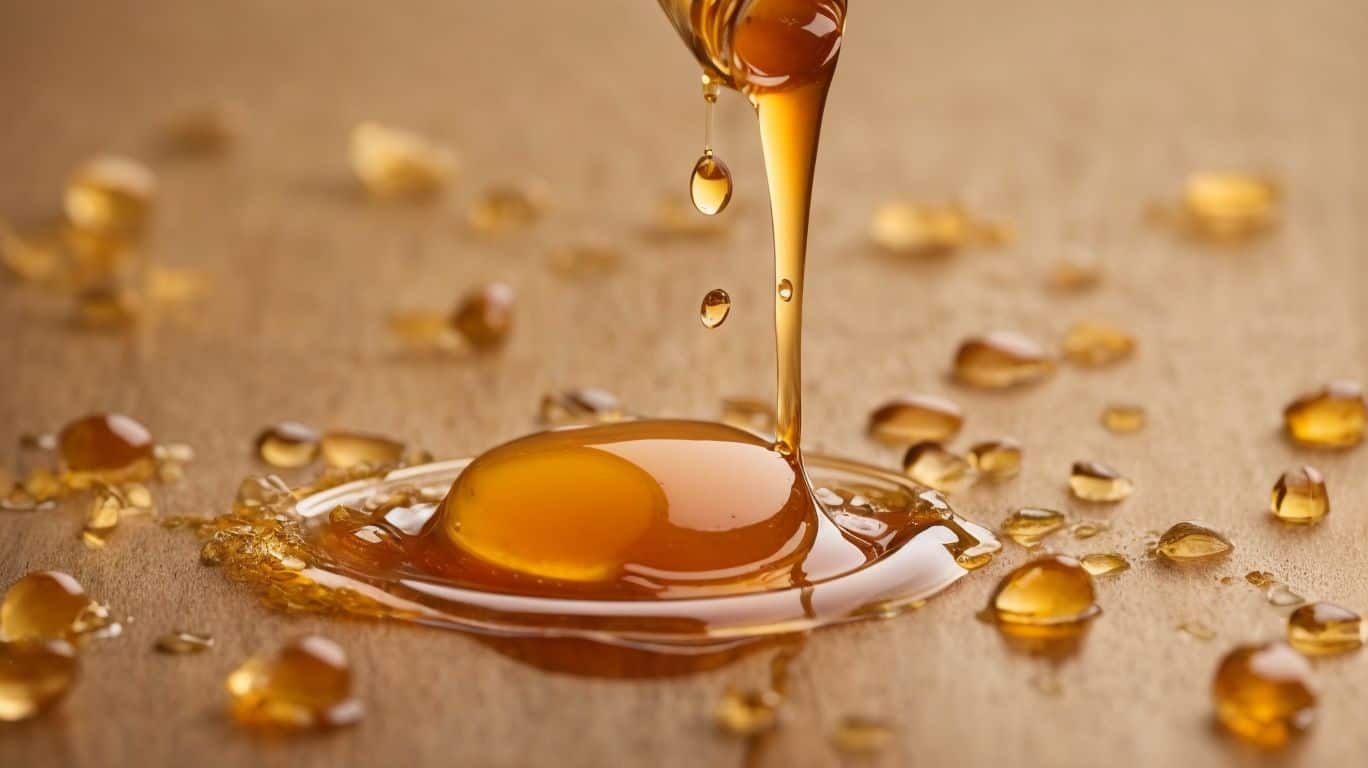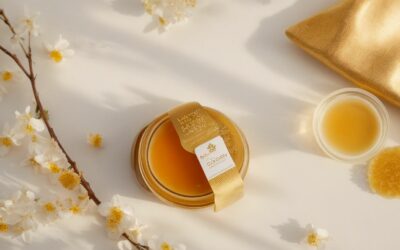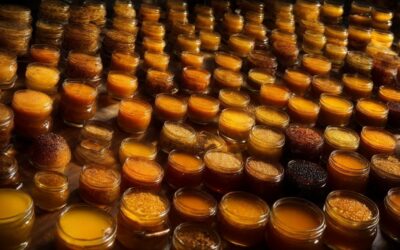Welcome to the world of Manuka honey, where the sweet nectar of nature meets powerful health benefits. If you’re someone who’s looking to improve their overall health and well-being, then this article is a must-read for you.
We’ll dive into the important question of “how much Manuka honey per day is best?” and give you all the answers you need to make the most of this wonder ingredient. Let’s get started!
How Much Manuka Honey Per Day Is Recommended?
Manuka honey has gained popularity for its unique healing properties and potential health benefits.
However, with its increasing consumption, many people wonder about the recommended daily intake of this golden elixir.
In this section, we will discuss the recommended amount of manuka honey per day based on general guidelines and specific purposes such as wound healing, digestive health, and skin health.
By understanding the appropriate daily intake, we can fully reap the benefits of this powerful natural remedy.
1. General Guidelines
When it comes to consuming Manuka honey, it’s important to follow general guidelines to ensure you maximize its benefits and minimize any potential side effects.
- Check the UMF (Unique Manuka Factor) rating: Look for a UMF rating of 10+ or higher to ensure you’re getting genuine and high-quality Manuka honey.
- Start with small amounts: Begin by consuming 1 to 2 teaspoons of Manuka honey per day and gradually increase the quantity if it suits you.
- Monitor your body’s response: Pay attention to any allergic reactions, digestive issues, or blood sugar spikes that may occur when consuming Manuka honey.
- Consult a healthcare professional: If you have any underlying health conditions or concerns, it’s always best to consult with a healthcare professional before incorporating Manuka honey into your diet.
2. For Wound Healing
To utilize the wound healing properties of Manuka honey, follow these steps:
- Cleanse the wound gently with mild soap and water.
- Dry the area around the wound thoroughly.
- Apply a thin layer of Manuka honey directly to the wound.
- Cover the wound with a sterile dressing or bandage.
- Change the dressing and reapply Manuka honey daily or as directed by a healthcare professional.
Manuka honey has been used for centuries by indigenous communities in New Zealand for its healing properties. The Māori people referred to it as “te iwi o te whenua,” meaning “the essence of the land.”
Today, it is recognized globally for promoting wound healing and providing natural antibacterial protection.
3. For Digestive Health
Including Manuka honey in your diet can be beneficial for digestive health. Here are some steps to incorporate it into your routine:
- Start with a small amount, like one teaspoon a day.
- Take it on an empty stomach, preferably in the morning.
- You can consume it directly, or mix it with warm water or herbal tea.
- Gradually increase the dosage if tolerated well, up to one to two tablespoons a day.
- Monitor how your digestive system responds and adjust the dose accordingly.
Story: Emily, a friend of mine, had been struggling with digestive issues for months. She started taking Manuka honey daily, following these steps specifically tailored for digestive health.
Over time, she noticed significant improvement in her digestion and overall gut health.
4. For Skin Health
To improve the health of your skin, add Manuka honey to your skincare routine by following these steps:
- Cleansing: Use Manuka honey as a natural cleanser by applying a thin layer to your face, gently massaging it in, and rinsing with warm water.
- Exfoliation: Create a DIY exfoliator by mixing Manuka honey with sugar or oatmeal. Gently massage the mixture onto your skin in circular motions, then rinse.
- Face mask: Apply a thick layer of Manuka honey to your face and leave it on for 15-20 minutes. Rinse with warm water for hydrated and glowing skin.
- Spot treatment: Dab a small amount of Manuka honey directly onto blemishes or acne spots and leave it on overnight. Rinse off in the morning.
By incorporating Manuka honey into your skincare routine, you can reap its potential benefits for skin health.
What Are The Potential Side Effects Of Consuming Too Much Manuka Honey?
Manuka honey has gained popularity for its numerous health benefits, but how much is too much?
In this section, we will discuss the potential side effects of consuming excessive amounts of manuka honey.
From allergic reactions to digestive issues and blood sugar spikes, we will explore the risks associated with overindulging in this sweet treat.
It is important to understand these potential side effects in order to consume manuka honey in a safe and beneficial manner.
1. Allergic Reactions
Allergic reactions to manuka honey can occur in some individuals, but they are relatively rare. If you experience an allergic reaction, follow these steps:
- Stop using manuka honey immediately.
- Watch for symptoms such as itching, hives, swelling, or difficulty breathing.
- If symptoms are severe or worsen, seek medical attention promptly.
- If you have a known allergy to bees or other types of honey, consult with an allergist before trying manuka honey.
- Consider doing a patch test on a small area of skin before consuming or applying manuka honey to check for any adverse reactions.
- Always read labels and check for potential allergens or warnings.
2. Digestive Issues
- Identify symptoms: Pay attention to signs of digestive problems such as bloating, constipation, diarrhea, or stomach pain.
- Consult a healthcare professional: If you suspect digestive issues, seek advice from a doctor or nutritionist for an accurate diagnosis and proper treatment.
- Elimination diet: Consider keeping a food diary and eliminating potential trigger foods like spicy or fatty foods, caffeine, alcohol, or processed foods.
- Probiotics: Incorporate probiotic-rich foods like yogurt, kefir, sauerkraut, or take probiotic supplements to support gut health.
- Hydration: Drink plenty of water to aid digestion and prevent dehydration, which can worsen digestive issues.
- Stress management: Stress can aggravate digestive problems, so practice stress-reducing techniques like meditation, exercise, or therapy.
- Small, frequent meals: Opt for smaller meals throughout the day to prevent overloading the digestive system.
- Avoid eating late at night: Give your body ample time to digest food before sleeping to reduce the risk of acid reflux or indigestion.
- Fiber-rich diet: Incorporate high-fiber foods like fruits, vegetables, whole grains, and legumes to promote healthy digestion.
- Slow eating: Chew food thoroughly and eat slowly to aid digestion and prevent swallowing excess air, which can lead to bloating.
- Avoid trigger substances: Limit or avoid intake of substances that can worsen digestive issues such as alcohol, tobacco, or certain medications.
3. Blood Sugar Spikes
Blood sugar spikes can be a concern for individuals consuming manuka honey. To avoid such spikes, follow these steps:
- Stick to moderate portions: Limit your intake to a tablespoon or less per day.
- Combine with other foods: Pair manuka honey with high-fiber foods or proteins to slow down the absorption of sugar into the bloodstream.
- Monitor blood sugar levels: Regularly check your blood sugar levels to ensure they remain within a healthy range.
- Consult with a healthcare professional: If you have diabetes or are at risk of experiencing blood sugar spikes, it is important to speak with a healthcare professional for personalized advice.
Throughout history, honey has been used as a natural sweetener and remedy for various ailments. Ancient civilizations, such as the Egyptians and Greeks, recognized its healing properties and used it for medicinal purposes.
Today, manuka honey continues to be valued for its unique antibacterial properties and health benefits. However, it is important to consume it in moderation, especially for individuals concerned about blood sugar spikes.
How To Incorporate Manuka Honey Into Your Diet?
Adding Manuka honey to your diet can bring about numerous health benefits. Here are some simple steps to help you incorporate Manuka honey into your daily routine:
- Start your day by adding a teaspoon of Manuka honey to your morning tea or coffee.
- Drizzle Manuka honey over your breakfast cereal or yogurt for a delicious and nutritious boost.
- For a healthy and natural sweetener, use Manuka honey in your smoothies or homemade granola bars.
- Spread Manuka honey on whole grain toast or crackers for a tasty and nutritious snack.
- Add a touch of sweetness to your salads or marinades by mixing in some Manuka honey.
Manuka honey has been used for centuries by the Māori people of New Zealand for its medicinal properties. It has been traditionally used to treat wounds, digestive issues, and respiratory ailments.
Today, its popularity has spread globally, with people incorporating it into their diets for its unique flavor and potential health benefits
Frequently Asked Questions
How much Manuka honey per day is best for improving immune system?
The recommended daily intake of Manuka honey for immune system support is one to two tablespoons per day. It is important to consult with a healthcare professional before increasing your intake, especially if you have any preexisting medical conditions.
Can I consume more than two tablespoons of Manuka honey per day?
While two tablespoons is the recommended daily intake, consuming more than that may not provide any additional benefits and could potentially lead to unwanted side effects such as an upset stomach or elevated blood sugar levels.
Is there a limit to how much Manuka honey I can consume in a day?
The limit for daily consumption of Manuka honey varies based on an individual’s age, weight, and overall health. It is best to consult with a healthcare professional for personalized recommendations.
Can I mix Manuka honey with other foods or drinks?
Yes, Manuka honey can be mixed with other foods or drinks such as tea, smoothies, or used as a natural sweetener in recipes. However, it is important to note that heating the honey above 104 degrees Fahrenheit can destroy its beneficial enzymes and antioxidants.
Can I take Manuka honey every day as a preventative measure?
Yes, taking a small amount of Manuka honey every day can help boost your immune system and provide potential preventative benefits. However, it is still important to maintain a healthy diet and lifestyle for overall wellness.
Can I give Manuka honey to children?
Yes, Manuka honey is generally safe for children over the age of one. It is important to consult with a pediatrician for the appropriate dosage and to avoid giving honey to infants under one due to the risk of botulism.
I’m a Manuka honey enthusiast and creator of Manuka Honey Organic, a blog where I share my journey with authentic Manuka honey from New Zealand. I want everyone to learn about the healing powers of Manuka honey.





